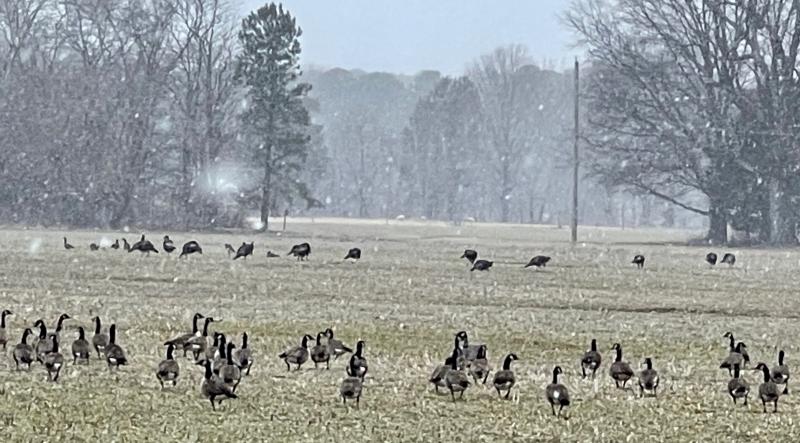Easter's coming just about as late as possible this year. Pagans, Christians, ospreys and turkeys all figure in.
Why? The quick answer is this. Easter Sunday each year falls on the first Sunday after the first full moon after the vernal equinox, also known as the first day of Spring. But of course I have to tell you more.
One of the most important dates in the Christian calendar, Easter - ironically - has deep Pagan roots. The way I understand it, the pre-Christian Pagans - like native Americans - had deep respect for the cycles of nature. Full moons, solstices and equinoxes were everything to them when it came to trying to grasp the larger natural forces that influence our lives.
Like us, when staring up at the vast and starry heavens above, they wondered about what was beyond the beyond. Full moons and such helped satisfy their itches to find meaning and order in the universe.
When the Christians were going about trying to get a little more organization into spreading their message of love, they decided to swim with the tide. They joined up with two of the Pagans’ most important and positive celebrations. The winter solstice, around Dec. 20 here in the planet’s northern hemisphere and the year’s shortest day and longest night, marks the return of lengthening hours of daylight. Watching the days getting shorter and shorter as winter deepened, the Pagans were just doggone glad the sun wasn’t going to go away forever. The solstice marked the turnaround.
Pagans celebrated with fires and dancing, feasting and love. Sounds good to me.
Somewhere along the way someone said - over and over and over - go forth and multiply. It started to stick. Now we’re up to eight billion or so on this planet of ours and counting. People take procreation pretty seriously.
The winter solstice gets the ball rolling and then along comes the spring equinox. With the sun directly over the equator on that day, its position results in equal amounts of light and darkness over the planet. Equinox means equal night.
The spring equinox, also known as the vernal equinox, starts the process of more sunlight than darkness each day and the traditional beginning of the growing season in this part of the world. That’s also a good thing.
When it came time for the Christians to set up their two most important holidays - Christmas and Easter - they weren’t exactly sure of the dates when their leader was born, and when he died and then rose again to rejoin his father in heaven. Rather than just picking a couple dates out of thin air, they decided to join forces with the Pagans.
They pegged - so to speak - Jesus’ birthday right around the all-important winter solstice but added on a few extra days just so they wouldn’t look like complete copycats. Christmas became Dec. 25.
Good planning. It worked.
Then came the Easter formula which added in a full moon - on Saturday, April 16 this year. They also added a Sunday component to the naturally rising optimism of the arrival of spring. Dovetailing with the Christian narrative of renewal and love, that formula also stuck.
That’s my long version of why Easter is so late this year.
Two more observations related to the natural world.
Ospreys have returned to our Delmarva rivers and creeks after their migration south for winter. The earliest scouting males showed up about a week before St. Patrick’s Day to begin staking out nesting sites. Others followed their springtime cues last week and this week with local numbers growing each day.
And the wild turkeys. They have come out of the woods and are feeding in roadside fields where they are visible to passersby. Like the ospreys, turkeys take the arrival of spring as a sign to begin their mating season. This is the time of year when they gobble loudest. Quoting from Mr. Natural, “‘Twas ever thus.”























































